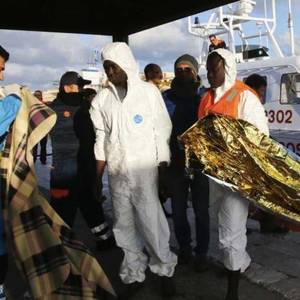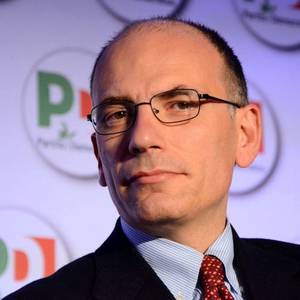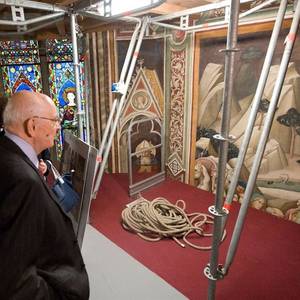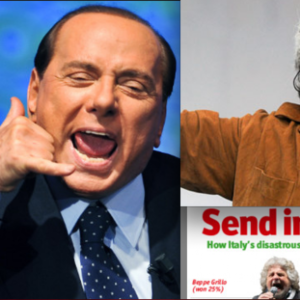Spring is busting out all over Italy, but the political climate remains deep winter. Premier Matteo Renzi, whose popularity had been robust at almost 40% in January, is watching his once firm grip on politics slip to today’s 33%. Meanwhile the stormy problems facing his government – public works, migrants, election rules – would challenge any leader anywhere.
You chose: napolitano
-
-
In April of 2013 President Giorgio Napolitano had reluctantly agreed to re-election after warring politicians failed to agree upon a successor. Now 89, he told Italians in his ninth and final traditional New Year’s Eve address, “I believe I am no longer able to carry out my responsibilities. It is time to return to constitutional regularity. I did my best.” At this first formal confirmation of his forthcoming resignation, listeners were deeply moved, but also, judging from talk shows and tweets, surprisingly self-analytical.
-
Through careful mediation, President Giorgio Napolitano has succeeded in calming at least some of the troubled waters of political Italy. This is a victory for Italy, for justice, for Premier Enrico Letta's coalition government, but also for the moderates within former Premier Silvio Berlusconi's splintered Freedom Party (PdL), who have been counseling a cautious approach even as an obviously depressed Berlusconi himself launches a new party. "I'd like to grant an amnesty but can't," said Napolitano in essence, while guaranteeing that Berlusconi will not go to prison.
-
In his attempt to weld together governing partners so as to end over two months of dangerous political void, Premier Designate Enrico Letta, 46, of the Partito Democratico (PD) has called for a "slim and sober" cabinet that will hit the ground running. Letta was called upon to try to form a government only l7 hours after Napolitano's re-election to succeed himself as president. His program points for a "service government" reflect some of the advice put forward by the so-called "sages" appointed last month by President Giorgio Napolitano. If he succeeds, a new government is expected within the week.
-
President Giorgio Napolitano has asked ten "sages" to elaborate a list of crucial issues around which the politicians should rally. But whatever they decide, it is a safe bet that Italy's magnificent cultural heritage will not be on their list. UNESCO considers the Italian cultural heritage the world's greatest single assemblage. And yet, as a new Eurostat report shows, Italian expenditures on maintaining that heritage amount to a mere 1.1% of its GNP as compared with the 2.2 average for the rest of Europe. This places Italy at the very bottom of the list of those European states protecting, and investing in, their cultural heritage. Archaeologist Salvatore Settis is the foremost authority protesting this.
-
The March 2 Economist magazine has Italy on the cover and the headline: "How Beppe Grillo and Silvio Berlusconi threaten the future of Italy and the euro." The charge: "Confronted by the worst recession in their country since the 1930s and the possible implosion of Europe's single currency, the people of Italy have decided to avoid reality." A better way to put it is that some here have failed to grasp reality because reality is complex. A government that can handle the economic crisis, and the social crisis implicit in it, is necessary, but which government?
-
No matter the outcome of this final match, Italy was undisputed protagonist of this championship. Remembering the past inglorious performances at 2010 World Cup nobody would have expected that the Italian team could grow so much within a few years and arrive so easily to the Final of Euro 2012.
-
As Italy’s celebration of the 150 years of Italian unification draws to an end, it’s time for a summation and a forward look.
-
The Monti government swears in the President: time for action has come. i-Italy introduces you to the new players of the Italian political game
-
This year, the Consulate General of Italy in New York celebrates the Day of the Republic with a great event that will take place on June 2 at historic venue Cipriani 42nd Street, in one of the most elegant and representative locations of Manhattan.







































